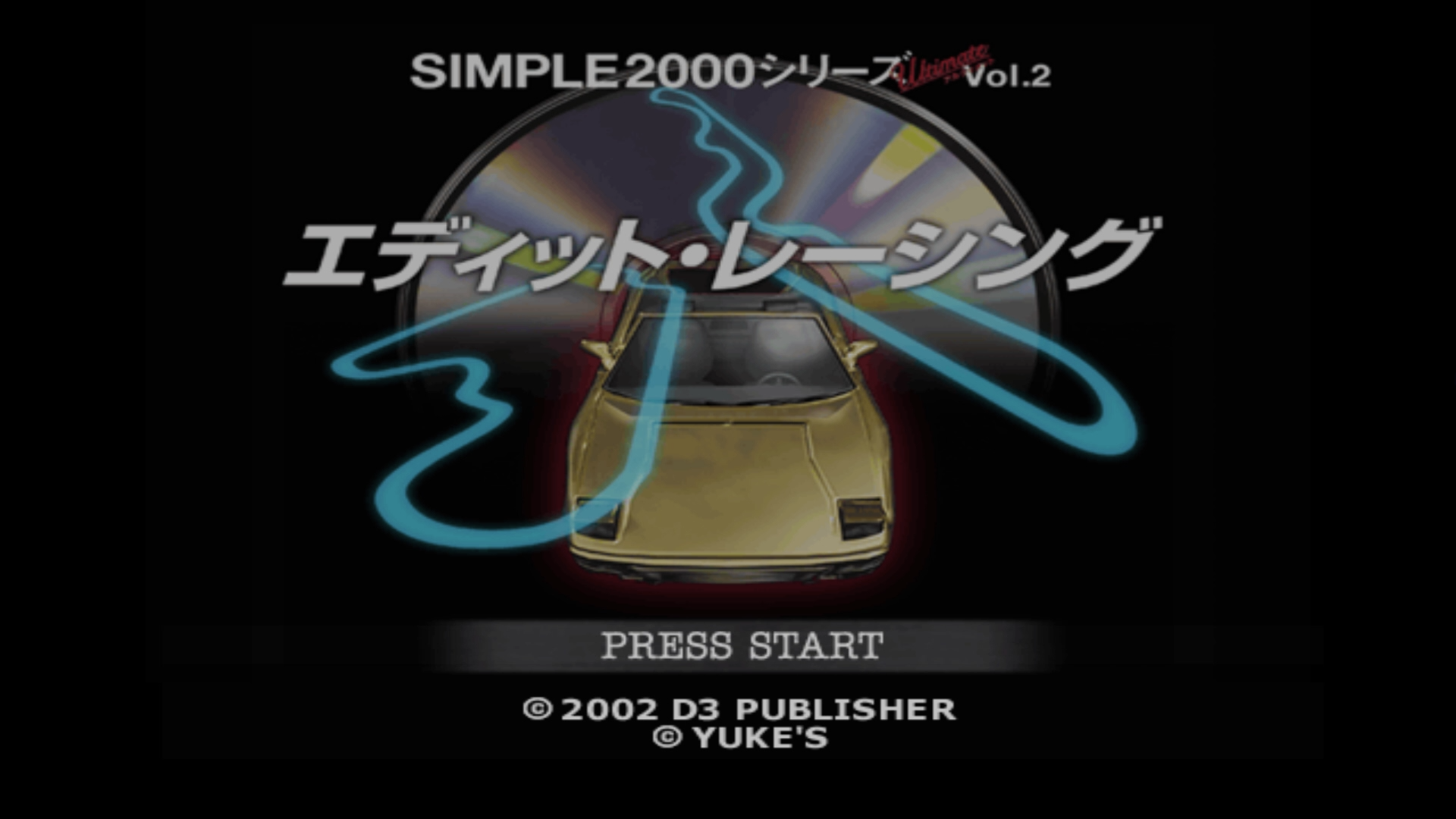Simple 2000 Series Ultimate Vol 2: Edit Racing
The Simple 2000 series were a library of budget titles released throughout the Sony PlayStation and PlayStation 2, developed by a host of various studios. A few months ago, I've looked at The Maid Uniform & Machinegun's English patch, courtesy of translator and modder Hilltop. As a part of the Simple 2000 series, The Maid Fuku to Kikanjuu was a simple beat-em-up with very questionable design choices. For example, despite it being in the name, using your machine gun deducts points at the end of your score. Unlocking the powerful guns required the player to almost play with discipline in mind and it ultimately limited the amount of fun the player could have. Edit Racing suffers from a similar need for the player to earn their fun, however, the novelty in Edit Racing is for a completely different reason.
The Japanese developer, Yuke's, was best known for their WWE Smackdown! series, which would later evolve into Smackdown VS Raw, and finally the WWE 2K series. They have worked on other wrestling titles, including the underrated Rumble Roses which I reflected fondly over. During the time I was writing about the game, I discovered that Yuke's developed a racing game that largely flew under the radar for most fans. What's more; it was a part of the Simple 2000 series, meaning the same level of quirkiness that was featured in Maid Uniform & Machinegun is also featured here.

Edit Racing's main feature, as the title suggests, is its track editor that allows players to create surprisingly accurate race tracks for a two-thousand yen title. What's more, is that depending on the type of media the player inserts in their PlayStation 2, tracks are generated based on its content and metadata. The only other game I recall having a similar feature was Tecmo's Monster Rancher series, although players expecting the same attention to detail should curb their enthusiasm. Unfortunately, inserting an Ape Escape disc does not generate a monkey-shaped course, much like how players received a boxing monkey in Monster Rancher, but one could imagine.
Aside from the Track Editor, there's also a decent-sized tournament mode in which the player can select one of several drivers and a starting car. The drivers offer little to Edit Racing aside from occasional banter although the designs for the drivers are very distinct for lack of a better term. People from England drink nothing but tea and dress like they are from the countryside. Americans are loud and very 'murica and other stereotypes based on archetypes from their places of origin. It's one of those things where I wish I could have been in the developer's office to hear the conversations for some of these designs.

Once the player selects a driver and a starting car, they can participate in various tournaments. There's an opportunity to participate in a qualifying race that determines your starting position which I personally recommend as the AI is far too inconsistent. The rubberbanding is prominent in that you're never too far from first place, but the AI will pin you down as they trail behind. Getting first in the qualifiers will be enough to ensure that players achieve victory although it appears random whether the AI will put up a fight or not.
The car's physics is what I'd expect from a developer who seldom makes racing games. It has a "brake to drift" mechanic where cars enter powerslides and can attain high speeds well into the 200 mph range. What I found amusing was that despite being a Japanese exclusive, the speedometer defaults to the Imperial system rather than Metrics. During each race, a stage interaction will occur that greatly alters the intended route for future laps. A building may randomly blow up, barring the player's path and spreading debris that will grind your car to a halt. Likewise, new shortcuts may appear which may cut a considerable portion of the track.

These changes, again, predate similar games like Split Second by an entire console generation, which is impressive to see Yuke's implement such dynamic engagements early on in the PlayStation 2's library. Unfortunately, that's all that I can say about Edit Racing's gameplay. It suffers from most games with a track editor in that the default tracks are meant to be used as examples of what the player can create. Players will drive in the same desert, race track, and mountainscape with minimal differences in detail to separate each other.
Once you get a feel for the various classes of vehicles only to realize they all drive the same, you've seen all of what Edit Racing has to offer. Edit Racing is an interesting relic in Yuke's history outside of the wrestling games and it's worth checking out if only to experience a piece of gaming history. It's not the best non-fighting game title that Yuke's developed, but it has its charm that predates many spectacle races of the future.





